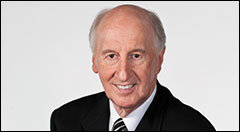
Imagine a church breathing fresh winds of the Holy Spirit’s presence and joy throughout its entire church family—winds generated by God’s grace but rising specifically from His working among the teens and college-agers within that body.
For many pastors, this vision of the Spirit igniting a church’s youth to affect the entire congregation is a “prophecy in waiting.” And as with all prophecies, discernment is essential—to receive truth and to reject confusion or error. To do both, let me recommend two things you, the lead pastor, must sign off on.
1) The foundation. What is the perceived relationship between you and the youth pastor regarding job description and expectations? If all I do is hire someone to offload my task as lead pastor while expecting the youth pastor to fit in and do his job—without growing him into the vision, culture, purposes and ministry philosophy of the body I lead—I’ve done nothing more than hire a “youth-sitter.” When that happens, no one wins in the long term.
I’ve seen the best and worst of this up close. During my first 10 years of ministry as a youth pastor, I learned the best through men who treated me as a partner. I never expected to be considered an equal, only partnered with as a younger brother who was eager to learn from them. And I did learn from great pastors who modeled and mentored with an open door and ever-welcoming hand to me, and who trusted my vision enough to raise questions that deserved better answers than I had.
In one case, however, a lead pastor had a bad taste in his mouth from two former youth pastors-gone-bad. Those experiences made him reticent to empower any youth leader, thereby stifling any cultivation of the two foundational basics key to lead/youth pastor teamwork: trust and partnership.
I learned how life-nurturing these two essentials are by experiencing the blessing of growth in a healthy climate and by encountering the disappointment and frustration that is bred in the absence of both. True fruitfulness for all involved requires the growth in and commitment to trust and partnership—led by the lead pastor, who shapes the mindset of the congregation’s leadership to live in these values and affirm their application to the youth in general, not only to the youth pastor.
Trust grows through regular interaction and by creating an atmosphere of mutual respect and patience that honors both the worth of the younger and the wisdom of the older. Partnership develops through a regular pattern of meeting between individuals who are joined to frequent times of agreement and faith in prayer. This is a proven course for threading a bond of unity together. Things work because hearts have been knit together.
2) The funding. Trust begets partnership, and funding flows from each partner bringing what they have to the table. In youth ministry, this boils down to pastoral and elder leadership determining that the youth budget is one of the body’s fiscal priorities. Honesty with reality mandates the decision: contending prayer, a convinced and tithing congregation will assure adequate resources. It can be no other way: Where our heart is, the treasure will be in evidence!
As a lead pastor, the church elders and I determined that if our youth leader and his team believed in a program or emphasis, and if additional funds were needed to advance touching and shaping youth, they received the funding. That’s all there was to it! They didn’t have a carte blanche;they had pastoral and corporate support when God stirred vision.
The two basics I’ve noted here are proven and will garner fruit—namely, the discipling of youth and effective evangelizing of added teens and collegians. When my wife, Anna, and I began in Van Nuys, Calif., with 18 members, we had one 12-year old. When we concluded, there were 8,000 members and more than 1,000 teens and collegians. It was a “God thing,” with no credit to us. But it was also the case of a church family who loved their young people, grew leadership who trusted and united in ministry, and who funded a ministry to youth because our hearts demanded it of our wallets.
A former senior editorial adviser of Ministry Today, Jack Hayford is the founding pastor of The Church On The Way in Van Nuys, Calif., and founder of The King’s University.
Get Spirit-filled content delivered right to your inbox! Click here to subscribe to our newsletter.
Dr. Steve Greene is now sharing stories, teachings, and conversations with guests who lead with love on Love Leads, a new podcast. Listen now.
Dr. Mark Rutland's
National Institute of Christian Leadership (NICL)
The NICL is one of the top leadership training programs in the U.S. taught by Dr. Mark Rutland. If you're the type of leader that likes to have total control over every aspect of your ministry and your future success, the NICL is right for you!
FREE NICL MINI-COURSE - Enroll for 3-hours of training from Dr. Rutland's full leadership course. Experience the NICL and decide if this training is right for you and your team.
Do you feel stuck? Do you feel like you’re not growing? Do you need help from an expert in leadership? There is no other leadership training like the NICL. Gain the leadership skills and confidence you need to lead your church, business or ministry. Get ready to accomplish all of your God-given dreams. CLICK HERE for NICL training dates and details.The NICL Online is an option for any leader with time or schedule constraints. It's also for leaders who want to expedite their training to receive advanced standing for Master Level credit hours. Work through Dr. Rutland's full training from the comfort of your home or ministry at your pace. Learn more about NICL Online. Learn more about NICL Online.


